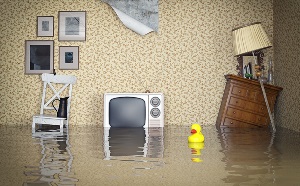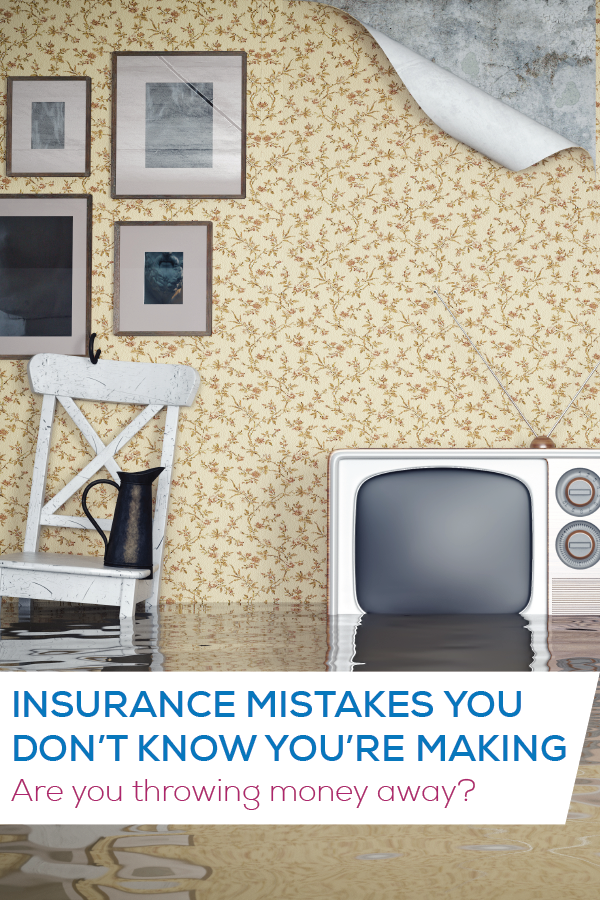Money Smarts Blog
4 insurance mistakes you don't realize you're making
Mar 15, 2017 ||

When’s the last time you really thought about your homeowner’s insurance? Sure, you probably think about the cost of your premium every time you pay, but when did you last consider your actual coverage?
If you’re like most people, it was probably when you bought your home.
While it might be easier in the moment to just stay with your current coverage when your policy renews every year, it might leave you with an expensive gap in coverage.
Best practice is to review your policies after any major life change, like a marriage, birth, or move to make sure you have the right coverage. But don’t think you’re safe just because your life hasn’t changed dramatically. You should review your policy at least once a year, on or before its renewal.
Here are 4 things you should ask yourself before renewing your coverage:
1. Do I have too much or too little coverage?
Your home’s coverage is normally set at the replacement value, and each carrier has their own evaluation method. Reviewing the amount can help you determine if the property is over or under insured.
2. Do I have coverage for more than just the structure of my home?
Homeowner’s insurance can do a lot more than just protect the structure against loss. Make sure you know what riders, or add-ons, your policy has and what’s available. Is your basement protected if the sewer backs up? Are your most valuable possessions, like furs, jewelry and art protected?
3. What’s my personal injury coverage?
Your standard homeowner’s policy probably protects you from lawsuits if someone falls down your stairs or your kid throws a ball through the neighbor’s window. But what if you’re sued because of something you or your family says on social media? You’re not protected unless you have a Personal Injury rider. Personal Injury insurance doesn’t give you the right to say, write or post nasty things about other people, but it will generally protect you against stuff like false arrest, wrongful eviction or entry, invasion or violation of privacy, slander and defamation (with certain limitations).
4. Do I have the right amount of liability coverage?
Personal liability limits are an important factor to look at. Normal liability limits are set for $300,000 for most policy holders, but the amenities in your home can affect the amount of coverage you actually need. Did you get an above or below ground pool installed? Did you buy a trampoline? These things cause a greater risk for loss, so having the right level of protection is important.
Talking to an insurance agent or broker can help you uncover needs and discounts you might be missing if you don’t review your policy before it renews. If you’re unsure about your current insurance coverage, it helps to have a professional review your policies with you.

4 insurance mistakes you don't realize you're making
Mar 15, 2017 ||

When’s the last time you really thought about your homeowner’s insurance? Sure, you probably think about the cost of your premium every time you pay, but when did you last consider your actual coverage?
If you’re like most people, it was probably when you bought your home.
While it might be easier in the moment to just stay with your current coverage when your policy renews every year, it might leave you with an expensive gap in coverage.
Best practice is to review your policies after any major life change, like a marriage, birth, or move to make sure you have the right coverage. But don’t think you’re safe just because your life hasn’t changed dramatically. You should review your policy at least once a year, on or before its renewal.
Here are 4 things you should ask yourself before renewing your coverage:
1. Do I have too much or too little coverage?
Your home’s coverage is normally set at the replacement value, and each carrier has their own evaluation method. Reviewing the amount can help you determine if the property is over or under insured.
2. Do I have coverage for more than just the structure of my home?
Homeowner’s insurance can do a lot more than just protect the structure against loss. Make sure you know what riders, or add-ons, your policy has and what’s available. Is your basement protected if the sewer backs up? Are your most valuable possessions, like furs, jewelry and art protected?
3. What’s my personal injury coverage?
Your standard homeowner’s policy probably protects you from lawsuits if someone falls down your stairs or your kid throws a ball through the neighbor’s window. But what if you’re sued because of something you or your family says on social media? You’re not protected unless you have a Personal Injury rider. Personal Injury insurance doesn’t give you the right to say, write or post nasty things about other people, but it will generally protect you against stuff like false arrest, wrongful eviction or entry, invasion or violation of privacy, slander and defamation (with certain limitations).
4. Do I have the right amount of liability coverage?
Personal liability limits are an important factor to look at. Normal liability limits are set for $300,000 for most policy holders, but the amenities in your home can affect the amount of coverage you actually need. Did you get an above or below ground pool installed? Did you buy a trampoline? These things cause a greater risk for loss, so having the right level of protection is important.
Talking to an insurance agent or broker can help you uncover needs and discounts you might be missing if you don’t review your policy before it renews. If you’re unsure about your current insurance coverage, it helps to have a professional review your policies with you.
